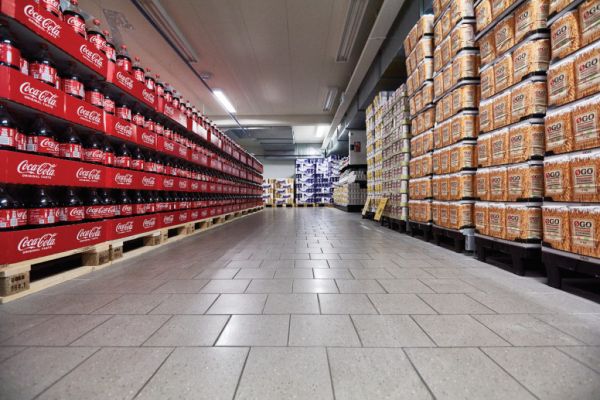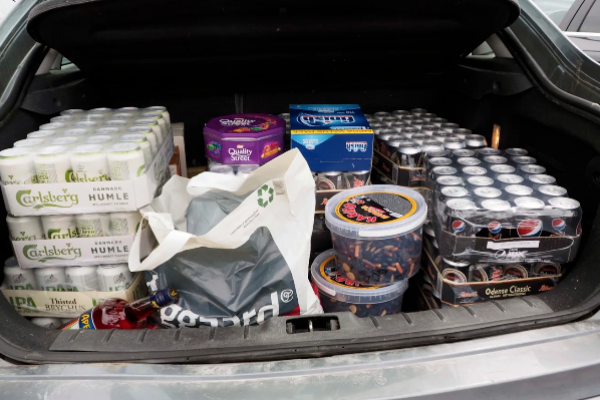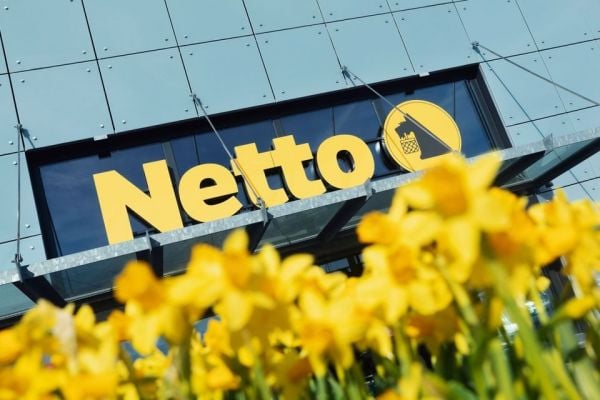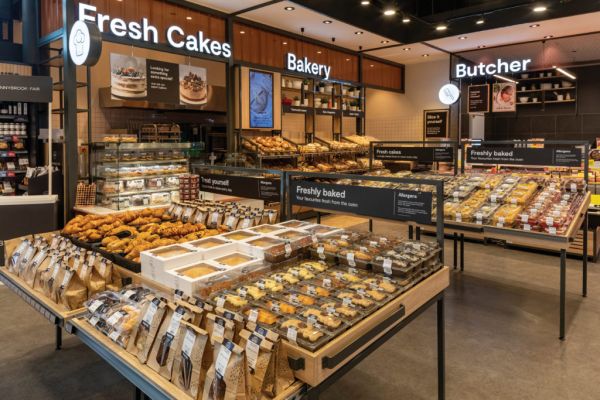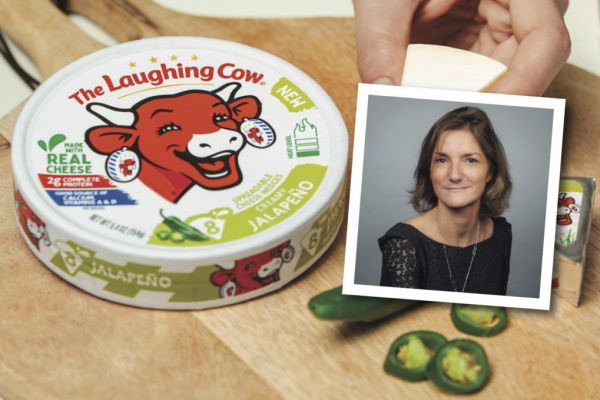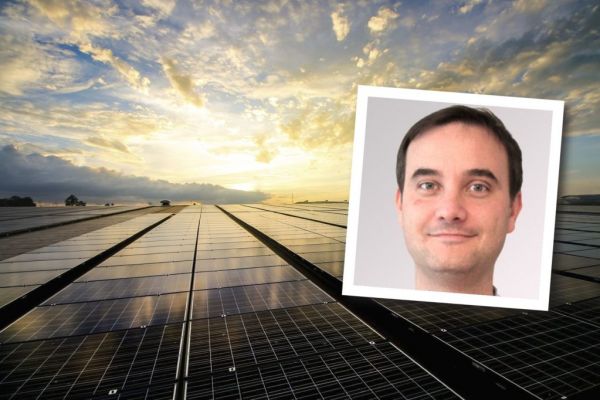Denmark’s Salling Group recently unveiled a new no-frills discount chain, Basalt, which claims to offer prices 15% cheaper than those of regular discounters. Stephen Wynne-Jones caught up with Netto director Braw Bakir to learn more. This article appeared in ESM’s November/December 2022 edition.
The numbers say it all. Inflation in Denmark recently hit a 40-year high – achieving levels not seen since the start of 1983 – with experts predicting that the situation for consumers could get worse before it gets better. As a representative from Dansk Erhverv, the Danish chamber of commerce, put it recently, the country has been hit by a “perfect inflation storm”, with energy and supply problems compounding a market still recovering from the pandemic.
Into this economic maelstrom comes a new discount chain, Basalt, operated by Salling Group, which is also home to Netto, Bilka and Føtex. Adopting a no-frills approach – the store boasts no refrigerators or freezers, products are placed on pallets on the floor, and opening times are restricted to daytime hours – the chain aims to offer prices that are 15% cheaper than those of traditional discounters, combatting the inflation challenge head on.
According to Salling Group CEO Per Bank, Basalt is proof that the Danish operator has the “courage to try something new” to tackle the cost-of-living crisis, but will it work – and what sort of longevity does a concept like this have?
Developing The Concept
“Over the course of the year, we were talking a lot about inflation, energy prices – all these issues that retailers across Europe have right now,” says Braw Bakir, country director for Salling’s Netto brand, and the man responsible for the roll-out of the new Basalt concept.
“Suddenly, our CFO had this idea: if we took all the costs involved in running a store out and lowered the logistics costs, could we operate a store that offers prices 15% to 20% cheaper than what’s on the market? That discussion took place at the end of the summer – just six weeks ago. From there, we started to plan it, and the roll-out was really, really quick.”
The first Basalt outlet opened in Kastrup, south of Copenhagen, in mid-October, followed by two further stores (in Viby Jylland and Helsingør) the same week. As many as ten stores are set to open between now and Christmas, the retailer has confirmed, upon which time the concept will be appraised ahead of potential further expansion.
“At that stage, we’re going to evaluate the concept and determine whether or not the Danish consumer is really ready for this sort of retailing,” Bakir says, “because I’m not convinced that they are. You don’t have the services you would get from other stores – there’s no meat, for example – but it is actually cheaper. We checked our prices against the competitors on the day that we opened, and we were 20% to 25% cheaper, so we are off to a good start.”
Product Offering
Basalt’s largely ambient product offering includes household staples, such as pasta, toilet paper, diapers/nappies, flour, bread, and long-life milk, with more than 80% of the 800 SKUs available (compared to around 3,500 in a typical Netto store) priced at DKK 20 (€2.69) or less. To date, according to the retailer, the biggest selling products have been rapeseed oil, sunflower oil, bananas, toilet paper, and canned tomatoes.
In addition, unlike other stores, each Basalt outlet will close at 7pm on weekdays and 4pm on weekends – again, in a bid to cut unnecessary costs.
“The retail payroll is also reduced – we have just two or three staff [members] working in each store,” says Bakir. “Also, we only have 25 SKUs of fruit and vegetables, so the waste will probably be 60% to 70% lower than in a typical store. There are all these different elements.”
The Basalt concept will inevitably draw comparisons with Mere, the Russian no-frills chain that opened test stores in several European markets earlier this year, before reigning in its expansion following Russia’s invasion of Ukraine. According to Bakir, such comparisons are merely coincidental.
“After we developed the idea, I Googled ‘hard discount’, to see what other concepts were out there, and Mere came up,” he says. “I decided to go down and visit their store in Germany, as it wasn’t too far from here, but it had closed.
“In fact, the inspiration for Basalt came from an online subscription concept we developed two years ago, called Fillop. It had no fresh foods, only ambient and non-food products. That didn’t work out for us, as we didn’t earn money from it, but we still got some experience from it – the technical part of that is the same as with Basalt.”
Read More: Netto Danmark Appoints Braw Bakir As New Country Director
Store Locations
In terms of store locations, Salling Group has adopted a novel approach. With the conversion of Netto outlets to the retailer’s new ‘Netto 3.0’ concept still ongoing, Basalt can act as a go-between – a stopgap between a traditional Netto store being cleared out and a new Netto 3.0 being developed.
“The plan is still to have all Netto stores converted to ‘3.0’ by 2025,” says Bakir. “This is a test concept, so we’re not putting a lot of capex investment into going out and finding new locations. Our initial ten Basalt stores are part of that natural Netto development pipeline, and if they are successful, we will look for additional sites after that.”
This leads to the question of cannibalisation – with the Netto brand’s reputation already established in the eyes of Danish consumers, could Basalt, with its promise of cheaper prices, erode the brand’s standing? Bakir isn’t so sure.
“Our customers are used to shopping around,” he says, “so, yes, Basalt could take some shoppers away from Netto, but it will also take some shoppers from our competitors as well. Actually, the plan is to open a Basalt right beside a Netto store, just to see how the traffic is affected. We have some experience with that, as we have some Netto stores located just beside a Føtex.”
Salling Group’s European footprint – it recently expanded its Netto operations in Poland, for example, taking over Tesco’s business there – will inevitably lead to a discussion about whether the Basalt concept could work in other markets, but Bakir won’t be drawn on the future plans for the concept beyond the current test phase.
“Let’s take small steps, assess the ten stores, and then evaluate it,” he explains. “That should take three to six months. After that, it’s really up to Per [Bank], whether he wants to launch it in Poland or other markets.”
Read More: Change Of Leadership Planned At Netto Polska As Tesco Transformation Begins
Business Momentum
What the new chain has done, Bakir adds, is give new impetus to the business during challenging times.
“Everybody has been talking about the energy crisis and gross margins – all those kind of things,” says Bakir, “but I can feel that, since we launched Basalt, the energy level in our company has just gone up.
It’s been a way to start up some positive energy and given people something else to talk about.”
At a time when negative headlines seem to be all encompassing, this can only be a good thing.
© 2022 European Supermarket Magazine – your source for the latest Retail news. Article by Stephen Wynne-Jones. Click subscribe to sign up to ESM: European Supermarket Magazine.
